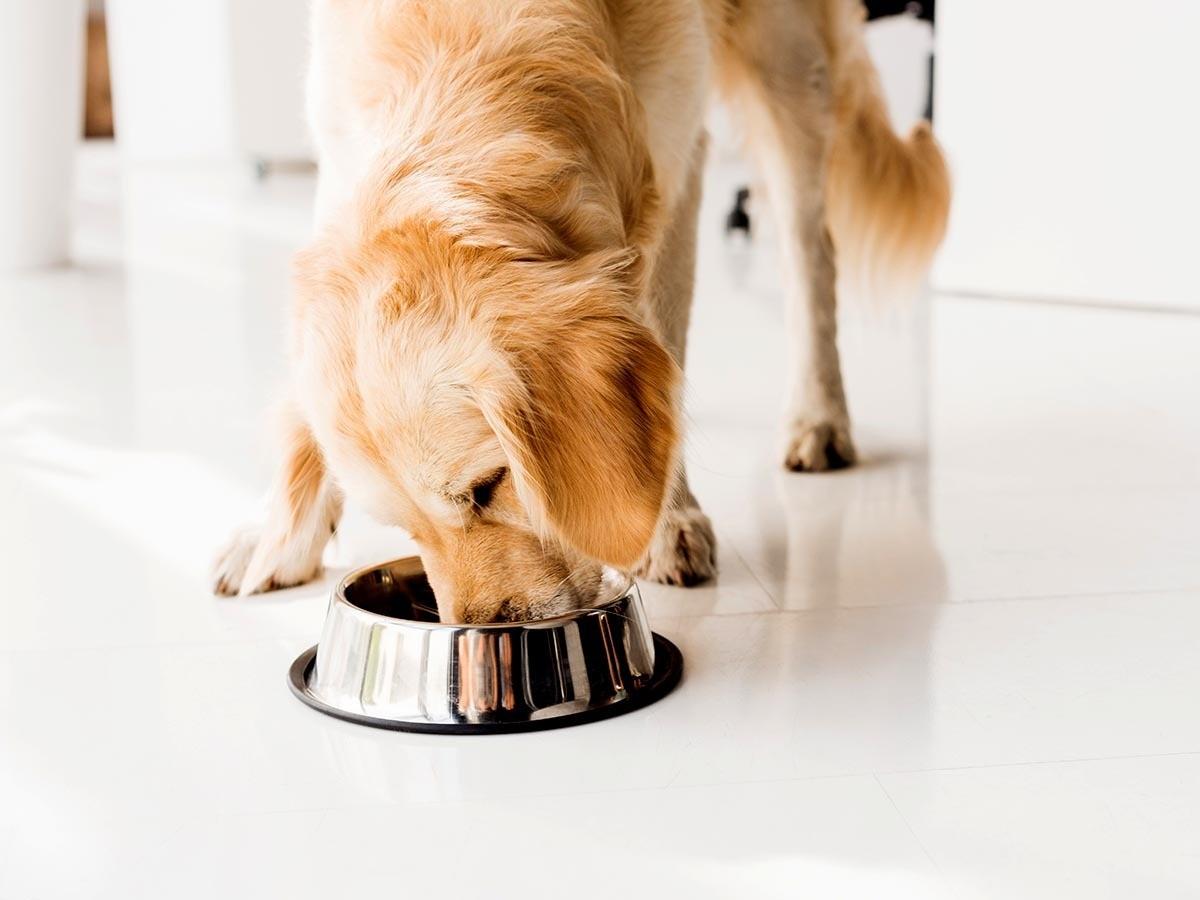Beef liver is not only safe but actually good for dogs to eat, but terms and conditions apply. To a dog, beef liver isn’t just food; it is a treasure filled with nutrition and flavor that might as well come with a tiny crown and scepter. But as much as you would love picturing your dog in a chef’s hat preparing a fine liver pâté for themselves, you need to know everything about dogs and beef liver.
When it comes to meat, there are two major types – organ and muscle meat. Muscle meat includes cuts like chuck, tenderloin, flank, shank, and more. Organ meat is, well, meat from the organs like the liver. Dogs need both muscle and organ meats as part of a balanced diet. While muscle meat forms the majority 70% of a dog’s diet and organ meat only forms 10% of it, both are equally important. Organ meats are usually richer in iron, copper, selenium, riboflavin, vitamin A, and certain B vitamins than muscle meat. (3)
Beef liver is the most widely eaten type of liver in the US. It is a staple diet in Egypt, Africa, Asia, and Latin America as well. But what makes it so popular?
Like all other livers, it contains plenty of protein, iron, and B vitamins. Apart from these, livers also contain vitamin C, potassium, phosphorous and copper. (2)
Here’s how it can help dogs – (3)
Iron – Improves blood supply throughout the body and regulates collagen production, body temperature, and red blood cell count.
B Vitamins - support cognitive function, reproductive health, digestion, nerve health, and metabolism.
Protein – Essential for muscle development, tissue repair, and growth.
Zinc - Improves skin, joint, and bone health. (Yes, it has zinc too)
Copper - Critical for skeletal health and connective tissue development. It also helps the body to properly absorb iron.
It is also cheaper than ground beef, which makes it a cost-effective choice.
Thinking of feeding your dog beef liver all day long every day already?
If yes, then calm down. As we said earlier, terms and conditions apply. There are certain risks associated with feeding beef liver to dogs. These include – (1)
Vitamin A toxicity
One serving of beef liver can provide more than 100% of the daily Vitamin A requirement for dogs. While this may look like a good thing, nothing in excess is ever good. Excessive intake can cause toxicity and you may see symptoms like bone deformities, weight loss, and digestive issues.
Contamination risk
However clean and trusted the source, there is always a chance of it being contaminated with toxins and heavy metals. They can pose a severe threat to your dog.
To avoid these risks, here are some steps you can take (and when we say can, it’s more like you must) –
Start with low quantities and check for any adverse reactions
Prefer organic and grass-fed options to avoid any chance of chemicals and pesticides.
Cook the liver to reduce the risk of contamination
Avoid any type of seasonings or additives
Mix it with your dog’s regular diet to avoid overconsumption and ensure balance.
Feed it to your dog as an occasional treat and not regularly
Consult your vet before making any dietary changes in your dog’s routine.
The appropriate quantity of beef liver to feed your dog depends on the size, age and overall health of your dog. Here are the recommended quantities – (1)
1 ounce per week for small dogs
1-2 ounces per week for medium-sized dogs
2-3 ounces per week for large dogs
Do remember that beef liver in itself is not a meal for your dog but just an addition. Always divide it into small portions and mix it with your dog’s regular food.
Can Dogs Eat Raw Beef Liver?
It is not unsafe to feed raw beef liver to dogs, but it is not recommended by most vets as the risks can increase. Some vets advise feeding raw beef liver to your dog, saying that cooking it destroys the nutrients and even makes it tougher for your dog to chew it. But the cons of feeding it raw can outweigh the pros. It can contain parasites and bacteria that can make dogs sick.
Additionally, if your dog is not used to eating raw foods, introducing raw beef liver suddenly can cause a stomach upset. Cooking it by boiling or steaming it can reduce the risk of parasites and bacteria for dogs.
Is Dehydrated Beef Liver Good for Dogs?
Dried or dehydrated beef liver can be a great treat for dogs. They contain all the benefits of beef liver including high protein content, rich in vitamins and minerals, etc. But just like raw or cooked beef liver, dehydrated beef liver, in the form of treats or not, should be given in moderation to dogs.
Is Beef Heart Good for Dogs?
Beef heart is another type of organ meat that can not only be safe but also good for dogs. Beef heart is a lean protein that's rich in B vitamins, iron, taurine, and other nutrients. These can help support muscle health, energy levels, and a healthy coat for dogs. The phosphorous in it helps build and strengthen your dog’s skeletal system. It also contains folate, which is important for DNA health and can help prevent anemia and IBD. (4)
Is Beef Liver Good for Dogs with Diarrhea?
Not so much. A dog’s digestive system gets sensitive during sicknesses like diarrhea. Beef liver, while good as an occasional treat for dogs, may worsen the situation due to its high-fat content.
More about Spot Pet Insurance
It is great that you’re asking questions and the right ones before adding or making any modifications to your dog’s diet. This will minimize the chances of you feeding something harmful to your dog and putting their health in danger. However, there can be times when you may unknowingly end up feeding something wrong or in the wrong proportion to your dog. Your dog may also end up eating something bad on their own and get into trouble.
They then stand a chance of getting sick. Some illnesses may be minor, but others might be severe and may even surgery. At such a time, worrying about your pet would be more important than worrying about all the medical bills. This is where pet health insurance helps. You can save up to 90% of all expenses and much more.

Mostly a tech person, always a pet person. I am dedicated to improving the lives of pets and their humans with technology. Off-duty, I enjoy writing about the misbehaving of computer programs and my two Aussiedoodles, Calvin and Hobbes.












